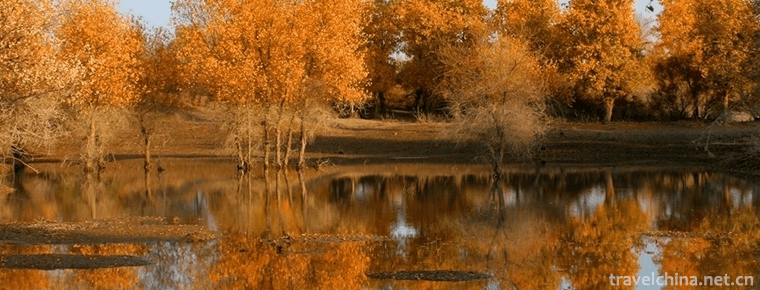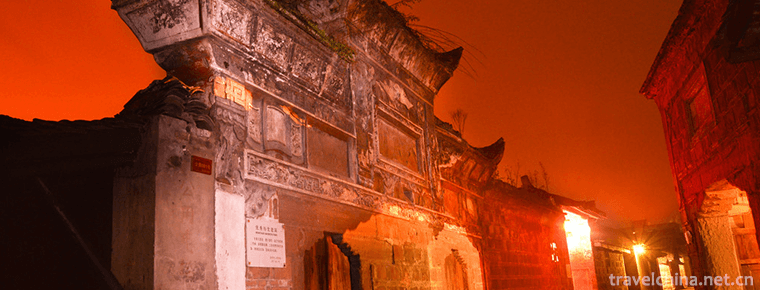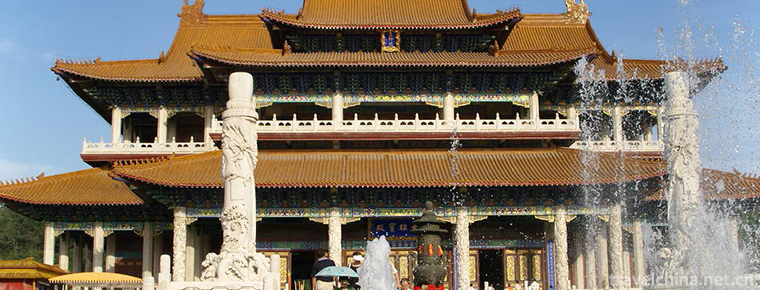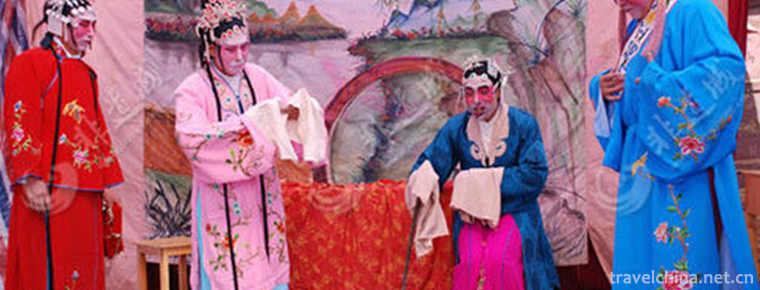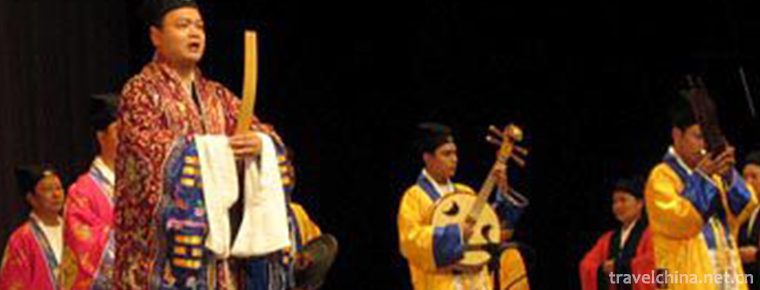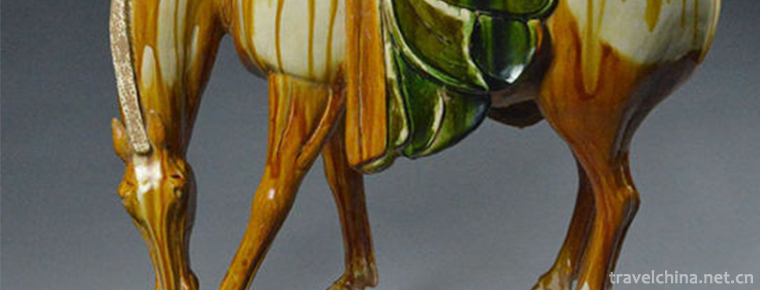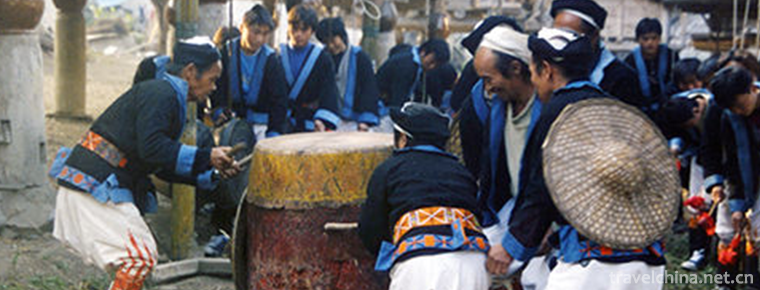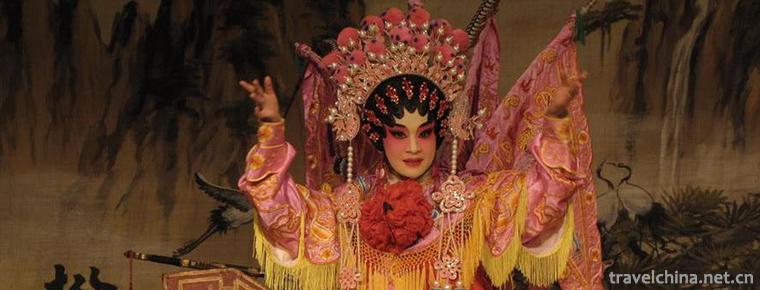Yi sea
Yi sea
The Yi sea is also known as the fish sea, and the local Yi people are called Su pin. It is located in Yangping mountain, Yihai Town, 40 km north of Mianning County. It is 330 km away from Chengdu, the capital of Sichuan Province, and 117 km away from Xichang, capital of Liangshan Prefecture. It covers an area of 1 square kilometers, with a planned protection area of 30 square kilometers and a distance of 7 kilometers from national highway 108.
In January 2019, the Yihai scenic spot in Mianning County of Liangshan Prefecture will be rated as a national 4A tourist attraction.
Historical evolution
On May 22, 1935, commander Liu Bocheng and political commissar Nie Rongzhen of the advance force of the Chinese workers' and peasants' Red Army met Xiao Yoda (xiaoyedan), the leader of the Guoji family of the Yi nationality, at the seaside of Yi nationality. They exchanged water for wine and swore to be brothers to make the brigade pass through Baili Yi area smoothly.
In July 1980, the people's Government of Sichuan Province announced that the Yihai Alliance Office was a cultural relic protection unit in Sichuan Province, and a marble cultural relic symbol was erected by the lake.
In 1995, it was officially listed as a provincial scenic spot.
In January 2019, according to the second meeting of Sichuan Provincial Tourism Resources Planning and development quality assessment committee in 2019, 21 scenic spots, including Yihai scenic spot in Mianning County of Liangshan Prefecture, were approved to be rated as national 4A scenic spots.
survey
Yihai lake is an alpine freshwater lake with an altitude of 2280 meters. The climate is warm and cool. The annual average temperature is 9-15 ℃. The four seasons are sunny and sunny. Yihai lake was formed in the early Holocene, about 15000 years ago. It was formed on the debris flow alluvial fan because of abundant groundwater recharge. Haizi is in the shape of Yuanbao. It is large in the South and small in the north. There is a water outlet at the south end. There is no water flowing around. It covers an area of 233 mu. The average water depth is 9.8 meters, and the deepest depth is 15 meters. It is a high mountain deep-water lake.
It is crystal clear all the year round, as clear as a mirror. From the perspective of Lake development, the Yi sea is in the stage of youth development. The Yi sea is surrounded by verdant pines, numerous trees, grass covered land, various kinds of mountain flowers competing for fragrance and beauty, and there are flocks of wild ducks on the lake. The overall landscape is vigorous and harmonious. At the same time, the historical story of the world-famous "Yi sea alliance" took place here. Beside the lake, there are Yi sea memorial halls and monuments to show people the historical chapters of the long march of the Chinese workers' and peasants' Red Army. The mountains and trees are particularly bright and fresh. Looking down from a height, Haizi looks like a sapphire inlaid in the mountains, glittering and translucent. Haizi is surrounded by ancient trees and fragrant grass. Rhododendrons, lilacs and Camellia vie for splendor. In the lake, flocks of wild ducks flutter and chirp, and play with the water. Strolling along the sea is like melting into the ink of the brush peak in the ink painting, which makes people daydream, relaxed and happy. Yihai has a cultural relics protection and management office, a lookout tower at the top of the mountain, cruise ships in the lake, reception rooms, pavilions, toilets and other facilities beside the lake, as well as a wild drinking area.
Yihai Alliance
The Red Army advance team entered the Yi sea area on May 22, 1935. At that time, the Yi people were deeply estranged from the Han nationality because they were discriminated and oppressed by the Kuomintang's policy of ethnic discrimination for a long time. When the Red Army's engineering platoon entered the Yi sea area, they were attacked and 'harassed' by Yi people from time to time. However, the Red Army never fired a single shot, but kept on giving propaganda and explanation to the Yi people. However, the two sides did not speak the same language, so it was useless for the Red Army to explain. Finally, the clothes of the Red Army soldiers were stripped off by the Yi people.
Xiao Hua of the Red Army's advance team found a grandfather named shamayiku, hoping that his grandfather would convey the Red Army's goodwill to xiaoyedan: first, the Red Army is only a way out, and will never invade the Yi people; second, the Red Army advocates national equality. Seeing that the Red Army was a good army, shamayi's grandfather gave Xiao Hua an idea that there was a way to gain the trust of the Yi people, that is, to make brothers with our leader. But when samayi's grandfather went back to report to xiaoyedan, xiaoyedan couldn't believe it. If there is any problem, I can take the head guarantee! In this way, Xiaoye Dan agreed to meet with Liu Bocheng to discuss an alliance. "
So Xiaoye Dan went to see Liu Bocheng with my grandfather. When he saw Liu Bocheng, Xiaoye Dan quickly took off his hat and knelt down to kowtow. Liu Bocheng saw it and quickly met him. He helped Xiaoye Dan up and said, "we are brothers. We are equal. We are not interested in this set of things." Xiao Yedan was very moved. He said that before seeing the officers of the Kuomintang, they all had to kneel down. It seems that the Red Army and the Kuomintang troops are really different. After a frank and friendly conversation, the two sides decided to pledge blood and form brothers. Samayi's grandfather immediately found a big rooster, but could not find the wine. Liu Bocheng said that as long as everyone is sincere, it doesn't matter whether there is wine or not. Then he took off the military kettle on his waist and asked the guards to fill the lake water in the Yi sea and pour it into two large bowls. Samayi's grandfather killed the rooster and dropped the blood into the bowl. After the ceremony was ready, the two knelt down side by side, took up the "blood wine" and swore to the blue sky and the Yi Hai alliance.
In this way, the Yi people and the Red Army became a family. On behalf of the Red Army, Liu Bocheng also presented some weapons, ammunition and a flag with the words "Guji detachment of the Chinese Yi People's Red Army" to Xiao Yedan, formally establishing the Yi People's detachment of the Chinese Red Army. After the Red Army left, the Kuomintang troops came, and they took away the guns that the Red Army gave xiaoyedan. And that flag was sewn in the pleats by xiaoyedan's wife.
After liberation, Xiao Yedan's wife dedicated the team flag that had been preserved for more than ten years to the army of the liberation of the Yi sea. This flag is also kept in the Chinese people's Revolutionary Military Museum! ""。
Practical information
Best travel time
Mianning belongs to subtropical monsoon climate. It is characterized by distinct dry and wet conditions, abundant sunshine in winter half year, less rain and dry warm, and more cloud and rain in summer half year and cool climate. The daily temperature difference is large, the annual temperature difference is small, and the average annual temperature is 16 ℃ - 17 ℃. If tourism activities are carried out, there is no difference between peak and low seasons.
Traffic information
From Chengdu to Mianning or from Xichang to Mianning, there are buses arriving every day. After arriving at Mianning, take a bus to Yihai Town, then walk or take local transportation for 7 or 8 kilometers to the scenic spot.



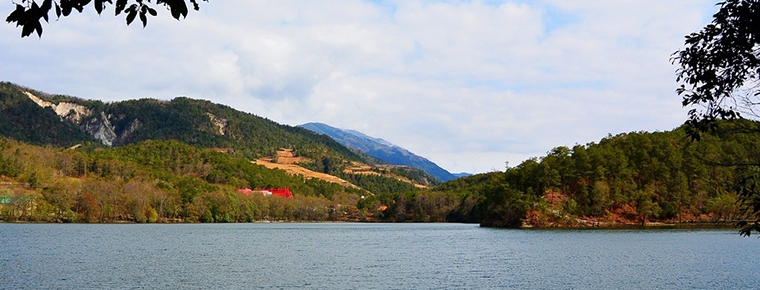
-
Crab congee
crab porridge is a snack in Macao. Macao is located at the junction of saltwater and fresh water, and the crab produced is delicious. Water crab porridge....
Views: 216 Time 2018-10-31 -
Jinhu Yang National Forest Park
Zepujin Lake Yang National Forest Park is located 40 kilometers southwest of Zepu County in the Gobi Depth, located in the upper edge of the Yerqiang River alluvial fan.
Views: 297 Time 2019-01-23 -
Li Zhuang ancient town
Lizhuang, an ancient town precipitated by cultural and historical relics, is an ancient town that tells stories and vicissitudes of the Anti-Japanese War. It is an ancient town that reflects Chinese t.
Views: 198 Time 2019-01-29 -
Jade Buddha Garden
Yufo Garden is a famous tourist attraction in Anshan. It is located in the core scenic area of Yufo Mountain. It covers an area of 270,000 square meters. It is surrounded by mountains on three sides a.
Views: 104 Time 2019-03-06 -
Brow tune
Meihu Opera is a local traditional drama in Shaanxi Province. From the development of the floor stall rap and social fire, the floor stall and social fire performances always focus on singing. Its act.
Views: 160 Time 2019-06-01 -
Taoist Music of Xuanmiaoguan in Suzhou
The Taoist music of Suzhou, represented by the Taoist music of Xuanmiaoguan, belongs to the Zhengyi Taoist music, and is an integral art with the performing process of Zhai Yin Fa. It sings different .
Views: 127 Time 2019-06-17 -
Tang Sancai Techniques
Tang tri coloured firing technique originated from the early Tang Dynasty. The tri coloured glazed pottery of Tang Dynasty, as the essence of traditional Chinese art in the Tang Dynasty, has a history.
Views: 121 Time 2019-06-18 -
Monkey Drum Encouragement of Yao Nationality
"Monkey Drum Dance of Yao Nationality" is called "Jiuglang" in Yao language. It is popular among Baiku Yao people in Yaoshan. "Monkey Drum Encouragement" is performed in .
Views: 125 Time 2019-07-11 -
Cantonese opera Yuequ
Cantonese Opera is a popular Cantonese dialect area in Guangdong and Guangxi, and has spread to Hong Kong, Macao, Southeast Asia and the Americas where Cantonese overseas Chinese live. It is a variety.
Views: 154 Time 2019-07-16 -
Fobao scenic spot
Fobao scenic spot, located 128 kilometers southeast of Sichuan Province, is located in the southern edge of Sichuan Basin. It is a primeval forest area at the tail of the North vein of Dalou mountain. It covers an area of 380 square kilometers. It has the characteristics of mountain, water, stone and forest. It is a subtropical humid climate with superior natural conditions and well preserved vegetation..
Views: 171 Time 2020-10-16 -
The evolution of Guangyuan
Guangyuan was ruled by Yin state in Xia Dynasty and Ju state in Zhou Dynasty. At that time, the state of Ju was in a state of tripartite confrontation with the states of BA (governing Chongqing) and Shu (governing Chengdu)..
Views: 300 Time 2020-12-15 -
Historical evolution of Neijiang
Xia and Shang were Liangzhou, Zhou was Yongzhou, spring and autumn and Warring States were ba Jun and Shu Jun; Western Han Dynasty was Zizhou; Eastern Han Dynasty was Han'an county..
Views: 322 Time 2020-12-16

